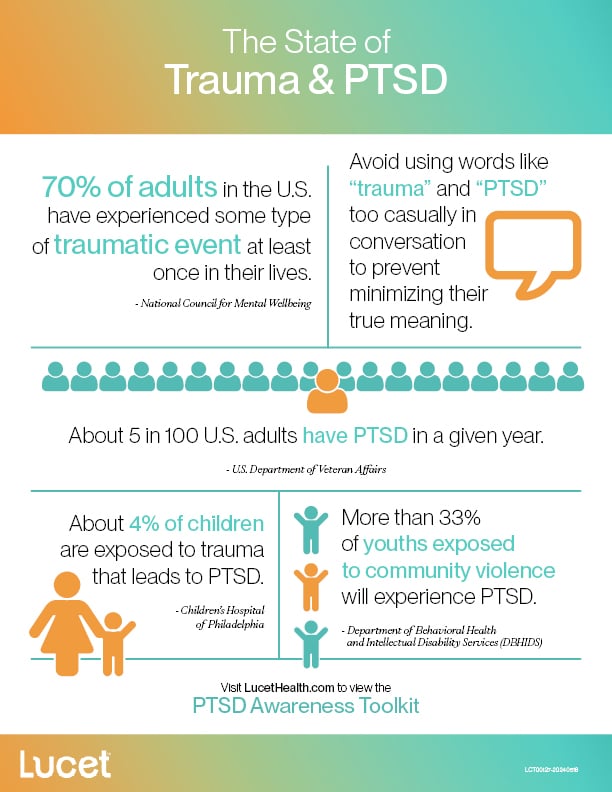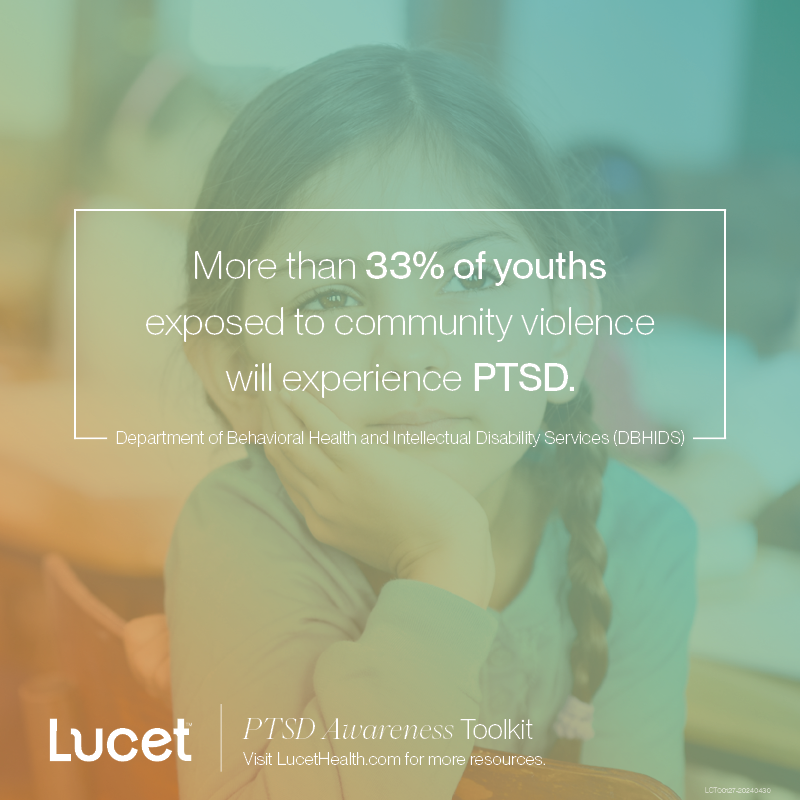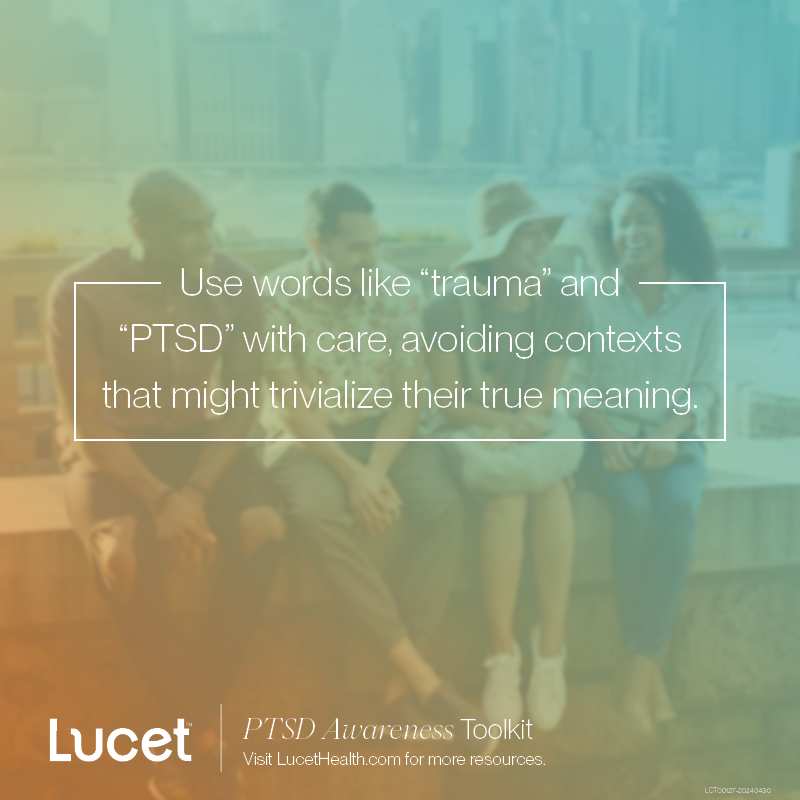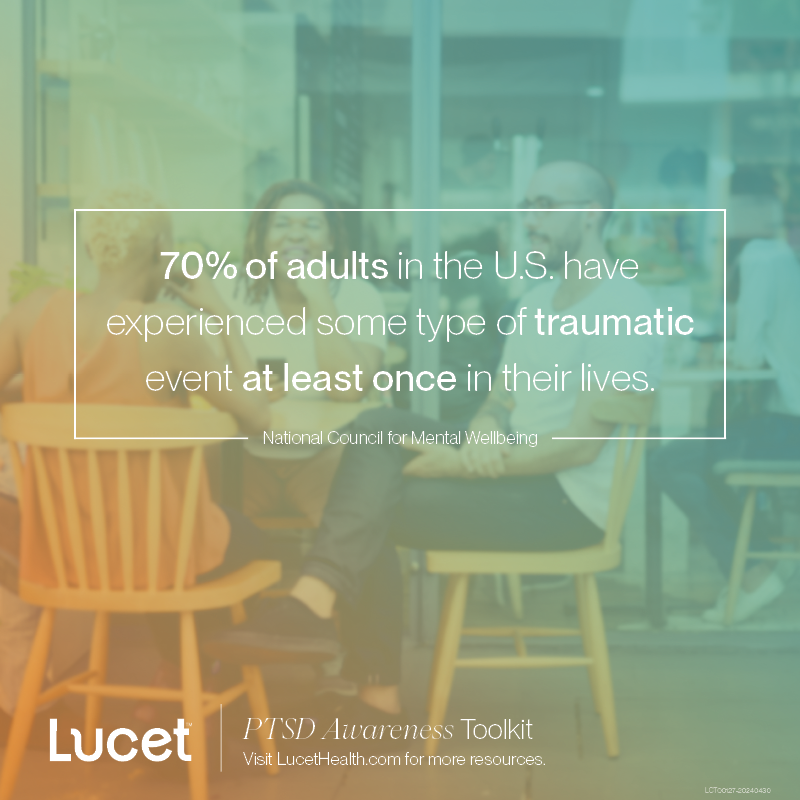Join the Conversation: PTSD Awareness Month
June is PTSD Awareness Month
Use the language below when posting about PTSD awareness on social media. Follow Lucet to see our content and share it on your account. You can also follow the steps below to post from your own account.
Create posts on your social media accounts
- Log in to one of your active social media channels to create a post.
- Scroll below and choose your desired social post language.
- Copy the caption and paste it into your social post editor.
- Right click on the corresponding graphic below to save it to your computer, then upload the graphic to your post to accompany the caption.
- Be sure to tag @LucetHealth. To tag any organizations listed in the caption, type @ in the social post editor, then start typing the desired organization. Choose the organization you want to tag from the dropdown list of pages that appear.
- Include the following hashtag in your caption: #PTSD #HealTrauma
- Post!
Share Infographic/Entire Toolkit
June is PTSD Awareness Month. A majority of adults in the United States—nearly 70%—have experienced a traumatic event in their lives. These experiences can lead to PTSD, which has lifelong consequences on mental health.
Use our resources to learn about the state of trauma and share support throughout June and all year long: resources.lucet.health/toolkit-ptsd
If you or someone you know is struggling with trauma, you can find additional resources through the National Center for PTSD, including the PTSD Coach mobile app. Veterans can contact the Veteran Crisis Line by dialing 988, then pressing 1.
#PTSD #PTSDawareness #HealTrauma
Share Tips
PTSD is not merely a case of feeling anxious or stressed — it involves enduring trauma that alters an individual’s state of mind. People with PTSD deal with symptoms that can last decades, and trauma is a risk factor in nearly all behavioral health and substance use disorders.
Read more about how you can recognize the signs: resources.lucet.health/toolkit-ptsd-know-the-signs
#PTSD #PTSDawareness #HealTrauma
You may have heard people talk casually about trauma, like, “I have PTSD from the twist ending of that TV show.” While there's no ill behind language like this, we should take care with our words surrounding trauma so we don't minimize the real struggles that some face.
Read more about developing inclusive language: resources.lucet.health/toolkit-ptsd-speak-language-trauma
#PTSD #PTSDawareness #HealTrauma
Share Articles
PTSD can intertwine with comorbidities such as depression, sleep disorders or substance use disorders. It also presents among all ages with differing symptoms.
Read more to learn positive coping mechanisms when living with the aftereffects of trauma: resources.lucet.health/toolkit-ptsd-steps-toward-healing
#PTSD #PTSDawareness #HealTrauma
#HealTrauma
If you or someone you know is struggling with trauma, you can find additional resources through the National Center for PTSD, including the PTSD Coach mobile app. Veterans can contact the Veteran Crisis Line by dialing 988, then pressing 1.



